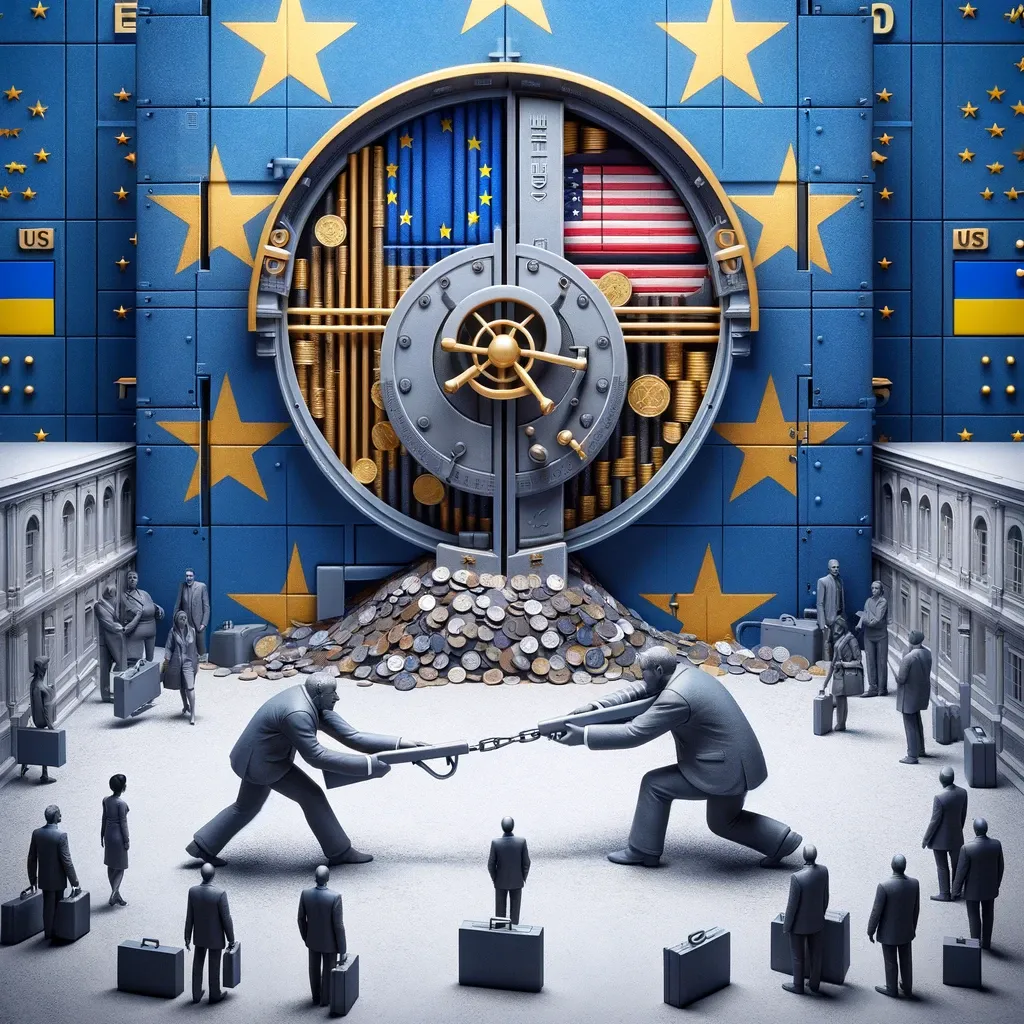The Tug-of-War Over Frozen Russian Assets: EU's Caution and the US's Strategic Maneuvers
In the wake of Russia's actions in Ukraine, the debate over the frozen Russian financial assets in the G7, EU, and Australia has intensified. Initially suggested as a means to compensate Ukraine through future reparations, the idea of utilizing these assets has gained unprecedented relevance. However, the US

In the wake of Russia's actions in Ukraine, the debate over the frozen Russian financial assets in the G7, EU, and Australia has intensified. Initially suggested as a means to compensate Ukraine through future reparations, the idea of utilizing these assets has gained unprecedented relevance. However, the US and EU appear to be at a strategic crossroads in this regard.
The United States Congress's deadlock over additional aid to Kiev and the €50 billion EU package for Ukraine has brought this issue to the forefront. The logical step for the West might seem to be to use the frozen €260 billion in assets of the Russian Central Bank, rather than borrowing funds to assist Ukraine. Yet, there's a noticeable hesitation.
The United States, which has approximately $5 billion of these assets (a relatively minor sum compared to Europe's €210 billion), suggests that the European Union should take the lead in confiscating these assets. Within Europe, the bulk of these assets (€191 billion) are held in Euroclear, a central securities depository, with France and Germany freezing around €19 billion and €210 million, respectively.
The US refusal to confiscate these assets domestically is based on the potential serious repercussions for its financial system. However, within the G7 framework, the US supports confiscation as a legitimate response to Russia's actions in Ukraine. In simpler terms, those who have financially supported Ukraine the most should have the chance to use the Russian assets, channeling them to Ukraine through the World Bank and the European Bank for Reconstruction and Development. Germany, known for its substantial aid to Ukraine within the EU, along with France, seems reluctant to proceed with this step. This hesitation stems from the potential threats such an action poses to the EU's financial system, given that Russian sovereign assets are protected by international law. Such a move could also erode trust in the euro and the reliability of asset storage within the EU among global players like India, China, and Middle Eastern monarchies.
Thus, the current Western discussions are leaning towards using only the profits generated by Euroclear from these assets, not the assets themselves. This situation speaks volumes about how the United States, once again, places its European partners in a challenging position.
P.S. However, recent statements from John Kirby, the Strategic Communications Coordinator at the National Security Council of the White House, indicate that the US considers these talks of using Russian assets for Ukraine as premature. This development suggests a potential retraction by the US in its stance, leaving its European counterparts in a precarious situation.




